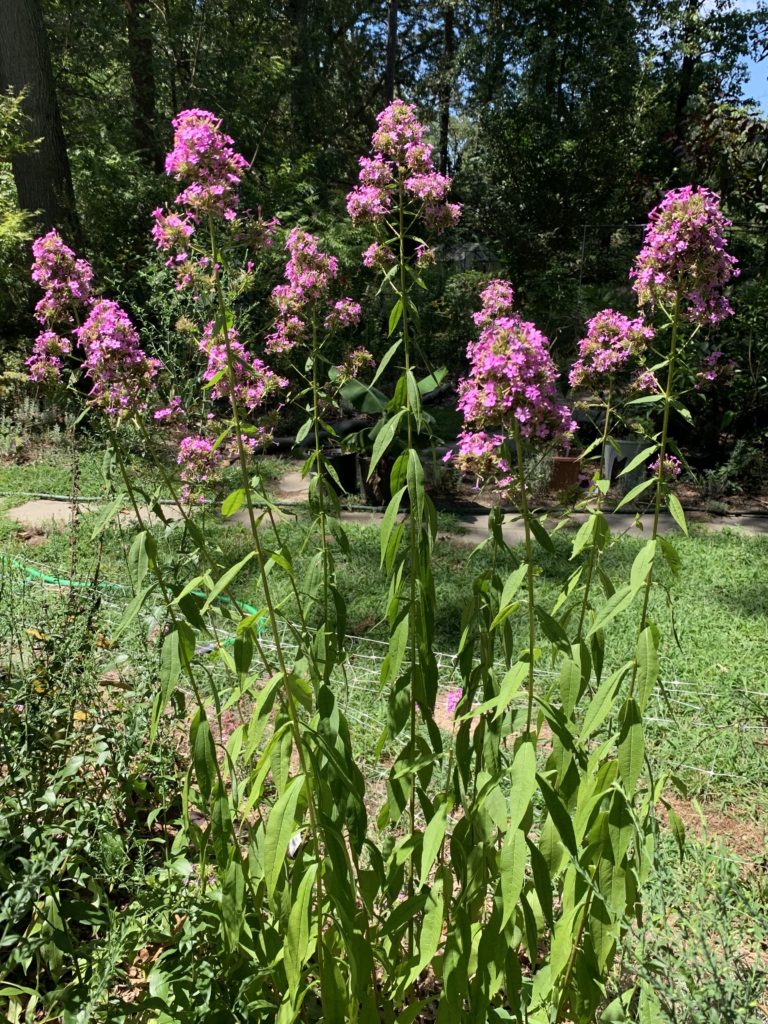Garden Phlox Offers Wealth of Variety

By Maria Price
Garden phlox (Phlox paniculata) is a native species of flowering plants whose habitat is open woods from New York west to Iowa and Kansas, south to Arkansas and into Mississippi and Georgia. It likes full sun and is hardy from zones 3 to 8. The showy flowers are a staple of American and European gardens. Since their discovery, horticulturalists have been selecting cultivars for improved horticultural traits. Today there are hundreds of cultivars to choose from.
The Mt. Cuba Center is a public botanic garden in Delaware. From 2015 to 2017, the center tested the performance of 94 different species of native phlox along with their related cultivars. Of these, 17 species are found in the eastern United States. European naturalists in Virginia discovered phlox. The first such record comes from British naturalist John Bannister, who made detailed drawings of downy phlox, Phlox pilosa, and moss phlox, Phlox subulata, in 1680. The father of modern taxonomy, Carolus Linnaeus, officially designated the name phlox in 1737. The word phlox is derived from the Greek word for flame, referring to the intense pink flower color of many species.
Philadelphia’s John Bartram, a famed colonial botanist, is credited with sending the first specimens of Phlox paniculata to Europe in 1744. By 1917, a survey of American nurseries counted 584 named selections of Phlox paniculata.
One of the best Phlox paniculata is ‘Jeana’, which was studied in the Mt. Cuba Center trials. The beautiful tiny flowered clusters were discovered growing along Harpeth River near Nashville, and named after its discoverer, Jeana Prewitt.
Although there were many Phlox paniculata in the area, ‘Jeana’ stood out for its exceptionally mildew free foliage. This trait carries through to the garden and is one of the main reasons ‘Jeana’ performed well in the trials.
This 5-foot tall beauty produces an impressive floral display from mid-July to early September. The individual flowers, or pips, are much smaller than any other garden phlox. The size of the flowers does not deter the butterflies that feed on its nectar. In fact, researchers found ‘Jeana’ attracted more butterflies that feed on its nectar than any other garden phlox in their entire trials. It is top ranked in both horticultural and ecological evaluations by Mt. Cuba. Phlox ‘Jeana’ is available locally at Beaver Creek Cottage Gardens.
